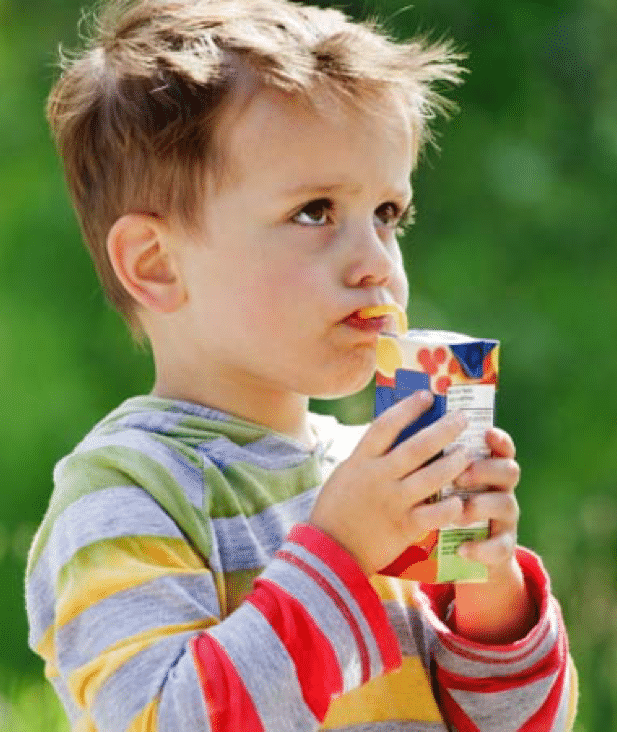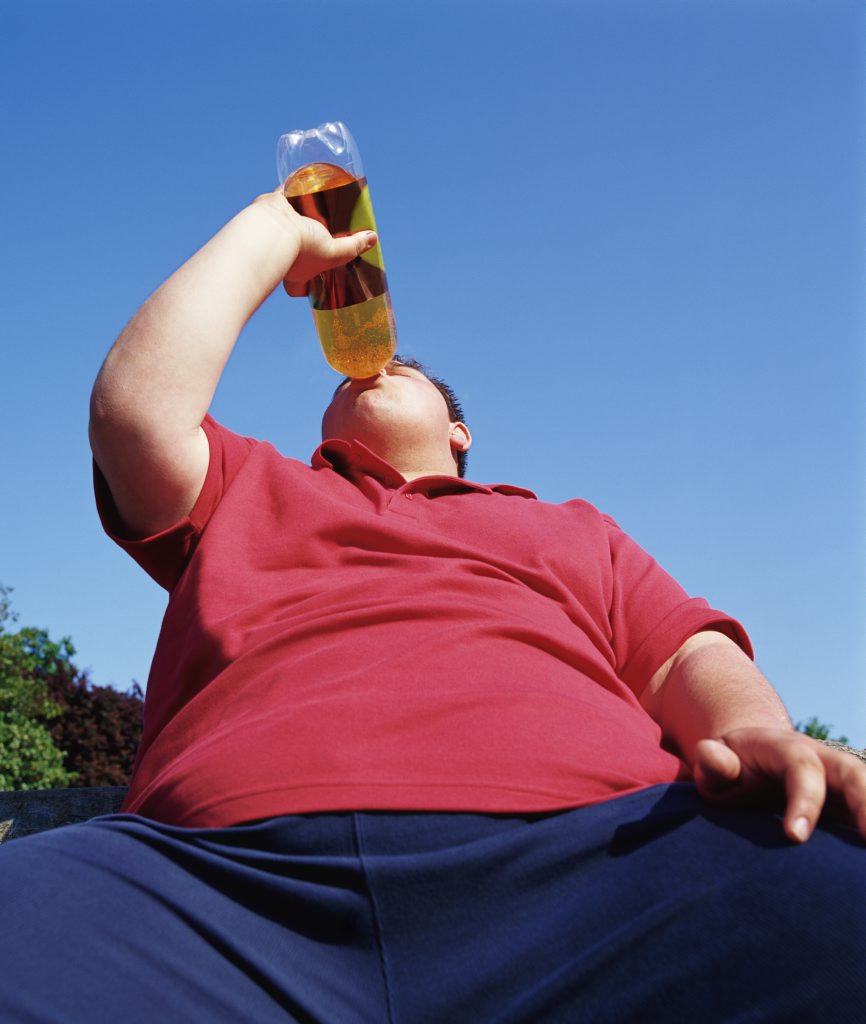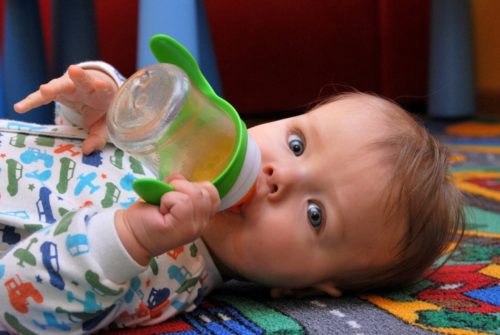Guidelines: Fruit Juice Intake For Children
I learned the adage “if a little is good, a lot is better” just after sitting in my pharmacology class and seeing Dr. Goodman hold up a book entitled: “Two For A Horse, One For A Human.”
Most generation of parents eventually find something to get “wrong” (especially if you ask the children) but it seems the current generation of parents is getting picked on… a lot. The latest? Fruit Juice.
NO fruit juice for children under 12 months
I’m actually not sure what happened and why; BUT, perhaps in a misguided attempt at healthiness it looks like bottles of fruit juice have replaced the binky.
The problem with that is the company it keeps: a completely unheard of explosion of obesity and all the health consequences that are going along with it! So much so, more than one article and talk I’ve heard in the past couple years have begun with the shocker: “data shows that children today are LESS healthy than they were 10 years ago.”
Look, I know you know where I’m going with this so I’ll just, very low key and without judgementalism, merely list some bullet-points of facts we’ve learned, things we see and guidelines doctors are being given as “standards of care and best practices.”
You’ll be able to draw your own conclusions, assess your parenting techniques in the privacy of your own home, and move on.
Infant and Children Feeding Guidelines
Fruit Juice Intake
Keep in mind these guidelines truly represent “best practices” because they were formulated by a fairly large group of the top pediatricians in the field of nutrition AND, knowing those guys, probably were made with a whole lot of soul searching so as not to come across as critical of already-burdened parents.
And, also because I know how things are done, they were published after no small amount of wordsmithing in order to NOT appear too pontifical or be misunderstood. My list for you here, of course, may not be wordsmithed completely smooth because there’s just me and no committee.
Guidelines For Parents

- Infants should NOT be given juice until 12-months of age, unless indicated due to some clinical problem.
- After a year of age: children 1 – 3 years – no more than 4 oz per day; 4 – 6 years – less than 4-6 oz/day; and 7 – 18 years – less than 8 oz juice per day.
- Toddlers: don’t make it easy for them to get, i.e. no easily transported cups that allow consumption throughout the day. Also, NO juice at BEDTIME.
- Encourage whole fruit and discourage juice for the child’s daily fruit intake
- Don’t rationalize and claim: “it’s for the fluids.” Human milk and/or infant formula is sufficient for infants and low-fat/nonfat milk plus water for older children
- Especially don’t use ANY unpasteurized juice products for infants, children or adolescents
Obviously this means that infants and children generally are being given way too much juice; which, as it turns out, they do not need.
Thing is, excruciatingly little of the “fruit juice” on the market contains exclusively, unadulterated juice. You can bet you bottom dollar that every company is trying to get away with selling you only the absolute minimum of the real thing they can and still make you “think” you’re getting juice.
By definition, kids need to be molly-coddled through tantrums and giving them a sugary drink is NOT the thing to use. Additionally, they’re not stupid. They’re going to choose sugar if it’s around, even if you’re trying to hide it.
This actually gives them massive amounts of “real” nutrition over and above what is left over after it is “juiced” at some factory and especially after it is packaged and sold to you.
Did you get that? Whole milk has even gone out of vogue these days. 1% or skim milk is all the family actually “needs” for nutrition.
In case you hadn’t heard of it in the papers where you live, more and more cases of food-borne illnesses are being found in juices, especially those imported to the US; which, are lessened by pasteurization. If you’re fussing about pasteurization on principle, you’re just going to have to squeeze your own; but you better practice safe hygiene practices too by cutting off rinds and meticulous washing to remove bacteria.
The above are the latest evidence-based recommendations for parents designed to not only encourage life-long nutritional habits but to avoid all the nutritionally-induced health problems improper habits induce in our children. You can call them “parenting guidelines.”
Now, let me list those “best practices” physicians should use when caring for pediatric aged patients.
Best Practices For Doctors

- Physicians should ALWAYS identify the amount of juice being consumed each day anytime they see a child who is either OVER or UNDER weight
- If you’re evaluating a child/adolescent for chronic diarrhea, excessive flatulence, abdominal pain and bloating—find out how much juice they are drinking
- If they’re evaluating a child/teen for dental caries (cavities), doctors should make it a routine to discuss the relationship between decay and fruit juice consumption way over that of whole fruit
- Anytime we see a child taking a medication which is metabolized by what we call the CYP3A4 system (there are a lot of them I won’t get in to) we should make sure the child doesn’t drink grapefruit juice (which interferes with that system)
Yes, fruit juice causes all kinds of problems leading to BOTH obesity and malnutrition and all the symptoms caused by each.
As we get older, many of the enzyme deficiencies we were born with begin showing up. Milk intolerance is common in a large number of adults. Sugar metabolism problems are not that uncommon in teens BUT, simply put, just the sheer volume of juice consumed can overwhelm the body’s ability to handle them, leading to all the symptoms listed.
Sometimes when we advise NOT to put the baby down with a bottle, parents assume we only mean of milk or formula. We don’t. ANY bottle is not good for a baby to go to sleep with. Once (or even before) teeth begin to sprout, being bathed in a sugary substance all the time just begs for dental work—no matter how much care is taken with fluoride.
And lastly,
In “normal speak” those are the latest guidelines for fruit juice consumption in children and teens. The more erudite form and wording of the guidelines are available from the AAP web site

